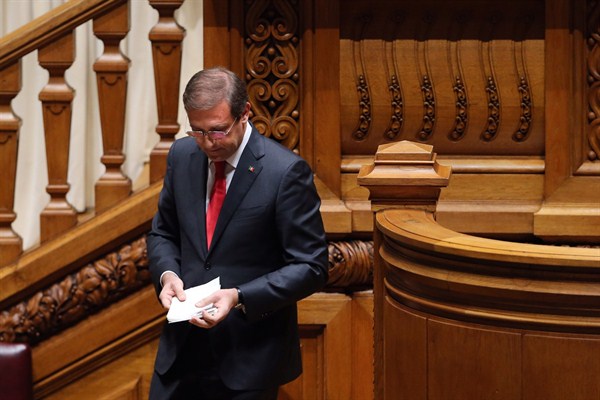A coalition of left-wing parties in Portugal forced the center-right minority government to resign late Tuesday, only 11 days after it took power following general elections. But the unstable partnership between the Socialist party and the smaller Communist party could mean a similar fate for the next government.
The toppling of the center-right government wasn’t exactly a surprise, given widespread unpopularity over its austerity measures. Now-ousted Prime Minister Pedro Passos Coelho’s government came in first place in last month’s election, but the coalition of his Social Democratic Party (PSD) and the conservative Democratic and Social Center-People’s Party (CDS-PP) lost its parliamentary majority, receiving only 38.6 percent of the vote. Passos Coelho formed a minority government at the request of Portuguese President Anibal Cavaco Silva, who holds a mostly ceremonial role. The move was widely criticized by many left-wing parliamentarians, one of whom said the president was “making the country waste time.”
And that turned out to be the case: The moderate center-left Socialist party forged an alliance with the Communist party and the radical Left Bloc, which all together control just over 50 percent of seats in parliament. With that majority, the parties voted down the government’s four-year policy program, which included continuing harsh austerity measures, and forced Passos Coelho’s government to resign.

